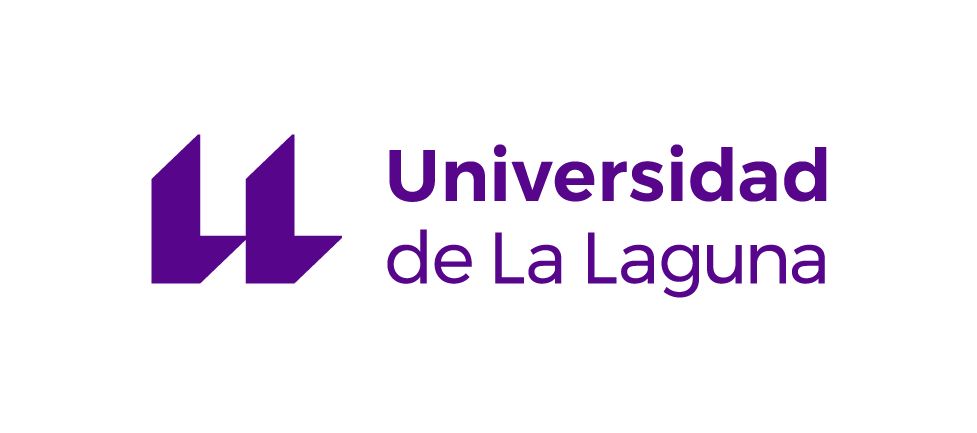
The official Postgraduate Programme in Astrophysics of the University of La Laguna is valid throughout Spain and, in agreement with the European Higher Education Area, consists of master's and doctoral studies.
The IAC-ULL provides an active and friendly environment for postgraduates. We have highly-competitive, internationally-renowned research groups in many areas of modern astrophysics. A Master's Degree is an entry requirement to undertake doctoral studies at IAC-ULL.
Further information: Master's Degrees at the University of La Laguna
The IAC-ULL Master's Degree in Astrophysics collaboration
Each year, the Department of Astrophysics (DA) at the University of La Laguna (ULL), in collaboration with the Instituto de Astrofísica de Canarias (IAC), welcomes a maximum of 50 Physics, Mathematics, or Engineering graduates who have taken a minimum of 30 ECTS credits in Physics modules similar to those in the ULL's Physics Degree course structure. A grant is not an entry requirement.
The Master's Degree in Astrophysics has a duration of 1.5 years (full time), with 90 ECTS credits, and is divided into three four-month periods when Physics and Astrophysics modules are given. During the third of these periods, the student must undertake a 15-ECTS “Introduction to Research” project under the supervision of a DA/IAC researcher, an investigator from a collaborating university, or from a company related to the field of Astrophysics.
Our Master's Degree in Astrophysics offers three pathways: Theoretical-Computational, Observational-Instrumental, and Structure of Matter, each of them with specific modules. Obtaining a Master's Degree is an entry requirement to start PhD studies at IAC-ULL. Therefore, the “Introduction to Research” project of the Master's Degree in Astrophysics may be regarded as the first part of the doctorate or as being closely related to it.
Facilities
The students of the Master's Degree in Astrophysics at the ULL have access to the following facilities:
-
The Computer Centre for Students at the Department of Astrophysics, with more than 30 workstations.
-
The library at the Faculty of Science and the library at the Instituto de Astrofísica de Canarias.
-
The Observatory at the Physics and Mathematics Building of the Faculty of Science.
-
The Teide Observatory (Tenerife) and the Roque de los Muchachos Observatory (La Palma).
-
The Instrument Laboratory at the Department of Astrophysics.
-
The study rooms at the ULL.
Collaborating institutions and companies
The ULL collaborates with many institutions and companies in teaching and research. Staff from the following entities usually give lectures and supervise research projects in the Master’s Degree in Astrophysics: The Instituto de Astrofísica de Canarias, the University of Southampton, the University College Dublin, the Observatoire de Paris, the Université Paris VI-VII-XI, the Museo de la Ciencia y el Cosmos de Tenerife, Gran Telescopio Canarias S.A., Grupo Mecánica Vuelo S.A., and Ingeniería y Servicios Aerospaciales, S. A.
On completion of the Master's Degree in Astrophysics, the student may undertake a 3-year research project towards his/her PhD thesis. A grant or doctoral contract and official admission are entry requirements to the DA/IAC Doctoral Programme (PhD grants). The DA/IAC provides its doctoral students with bibliographical, and state-of-the-art computing and observing facilities, as well as access to its own and international research projects, and funding for an efficient development of the research activity.
The Master's and Doctorate in Astrophysics Academic Committee (CAMyD) is in charge of the academic organisation of the ULL Astrophysics Master’s and Doctoral Degrees programmes. Its composition and membership follows:
- Dr. Pablo Rodríguez-Gil (Master's Director; IAC/Department of Astrophysics)
- Dr. Fernando Pérez Hernández (Doctoral Degrees Director; IAC/Department of Astrophysics)
- Dr. Clara Régulo Rodríguez (IAC/Department of Astrophysics)
- Dr. César Esteban López (IAC/Department of Astrophysics)
- Dr. Silvana Radescu Cioranescu (Department of Physics)
- Dr. Daniel Alonso Ramírez (Department of Physics)
Contact
Dr. Pablo Rodríguez-Gil (e-mail: prguez [at] iac.es (prguez[at]iac[dot]es) / telephone: 922 605 200 Ext. 5506 / 922 318 136)
- Instituto de Astrofísica de Canarias. Via Láctea s/n. 38205 La Laguna (Santa Cruz de Tenerife, Spain)
- Departamento de Astrofísica, Edificio de Física y Matemáticas, Facultad de Ciencias. Avda. Astrofísico Francisco Sánchez s/n. 38206 La Laguna (Santa Cruz de Tenerife, Spain).
You can find information about entry on: https://www.ull.es/en/masters/astrophysics/#admission-profile.
General entry requirements
- Either an Spanish or another university degree compatible with the Bologna Process (i.e. there is recognition and equivalence within the European Higher Education Area). For countries outside the European Higher Education Area, a university degree that grants direct entry to a master's degree in your home country, and declaration of degree equivalence by the Spanish Ministry of Science, Innovation and Universities. In the absence of such proof of equivalence, entry may be granted by the University of La Laguna.
-
Minimum English Language Entry Requirements: at least Common European Framework of Reference for Languages (CEFR) level B1 in reading, writing, speaking and listening.
You can find the regulations for master's studies on: https://www.ull.es/portal/normativa/normativa-ull/docencia/#master (only in Spanish).